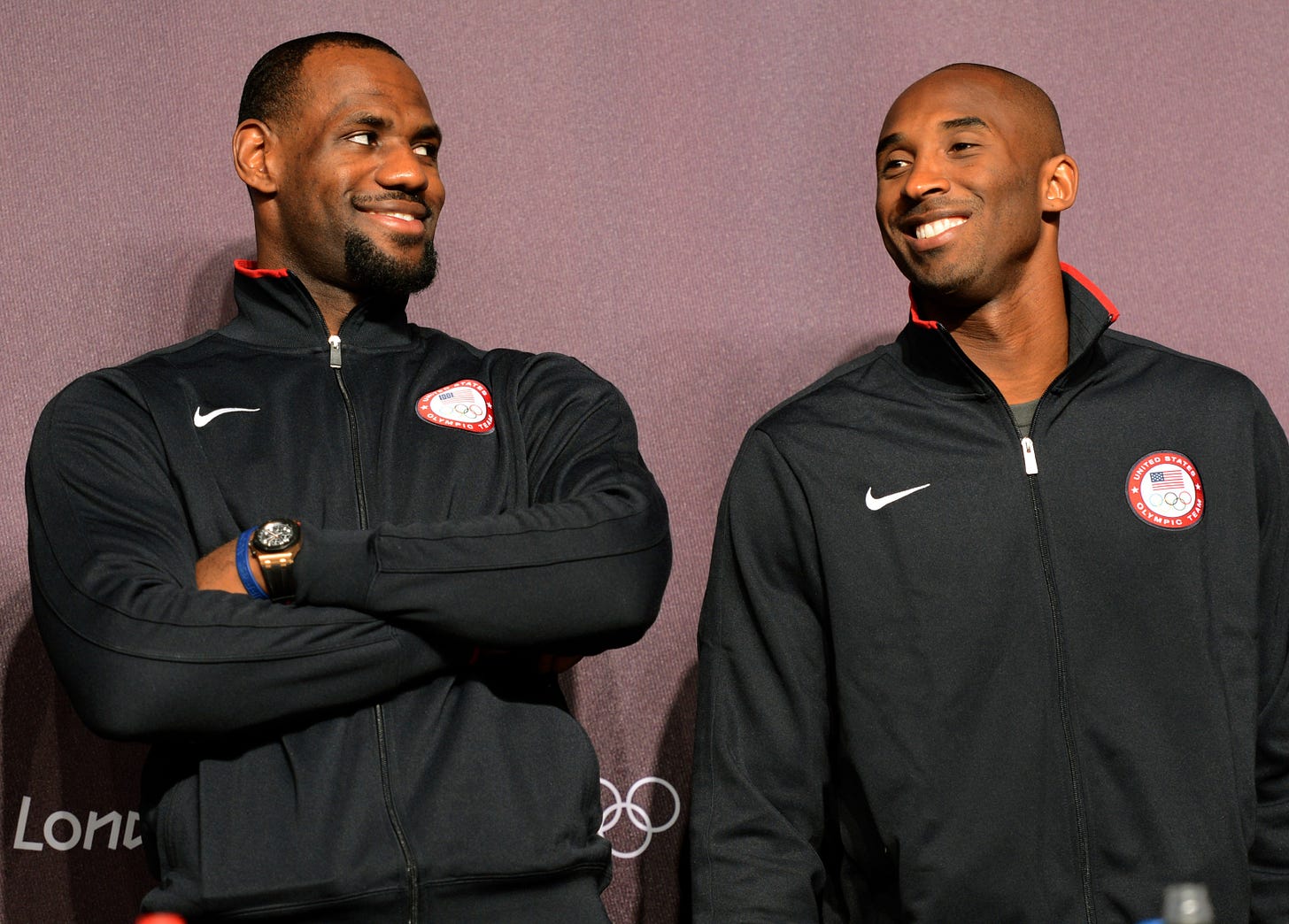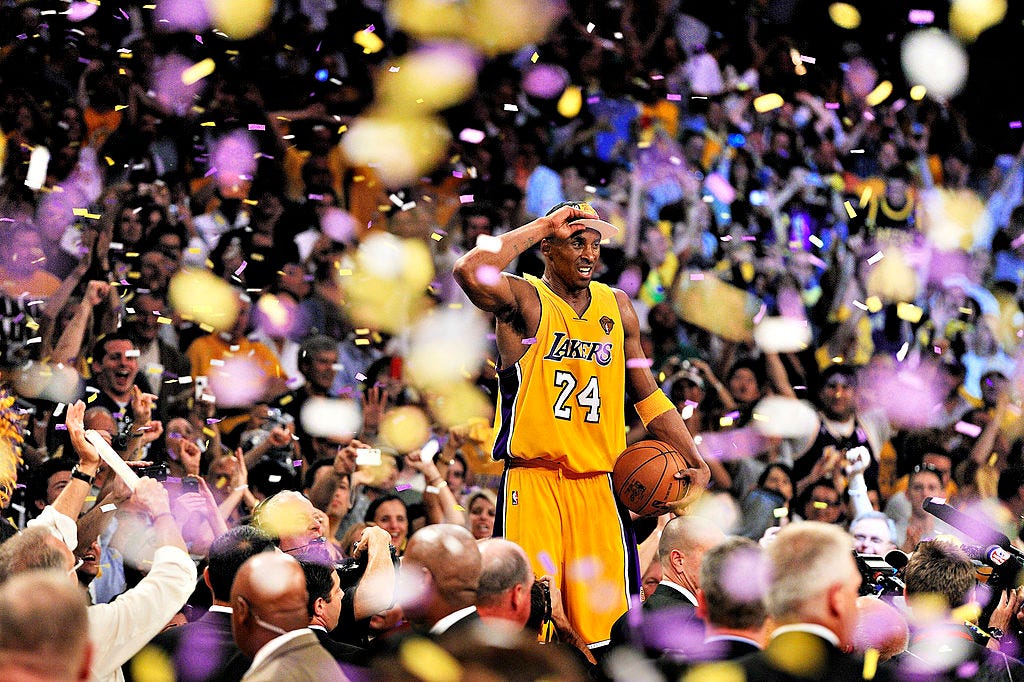Kareem's Insider Secrets of Episodes 9 and 10 of "Legacy: The True Story of the LA Lakers"
Magic Quits, Kobe Retires, LeBron Rules, Buss Family Implodes, Lakers Win NBA Championship

There’s certainly no shortage of heavy drama in Episodes 9 and 10. The years from 2010 to 2020 were the most challenging in the Lakers’ history—and in America’s recent history. Jerry Buss dying, Kobe retiring, Phil Jackson getting fired, COVID-19, and Buss family Borgia-lite in-fighting put the future of the team and the loyalty of the fans in jeopardy.
Being a Laker fan during this time sometimes felt like being a passenger on a creaky bus descending a treacherous, narrow, winding road with a cliff-drop on one side. All while three people wrestle over the steering wheel.
On the other hand, that’s what makes being a Laker fan so exciting.
EPISODE 9
Lakers Beat Celtics in 2010 NBA Finals.

When the Lakers defeated the Celtics by four points in the seventh game to win the NBA Championship, Red Hot Chili Peppers member and Laker superfan gushed in an interview: “I felt I could do anything for the rest of my life.”
That was the perfect expression of what sports means beyond its mere entertainment value. Sure, it’s great to see your team win a Final, especially against our arch-rival Celtics. But when we see a team rise to a challenge and triumph, it makes us all feel we are capable of rising and triumphing in the challenges of life. We don’t have to share their athletic skills, we just have to share their heart, their grit.
Coaching musical chairs.
At the end of 2011, the Lakers fired Phil Jackson’s training staff as a clear indication that Phil would not be returning as head coach. I was part of that staff let go. During that time, Phil was dealing with prostate cancer, which I also had to face. He asked me about my surgical procedure and I filled him in in the gritty details. The end result for me was that the cancer was no longer a threat to my life.
Brian Shaw, Phil’s assistant coach, was endorsed by both Phil and Kobe Bryant to replace Phil, but the Lakers instead chose Mike Brown. Mike Brown was a good coach and a smart choice, but Brian Shaw would probably have been a better choice because he already knew the team well and was familiar with the best way to coach them.
But selecting a coach is often as much a political statement as it is a sports decision. Jimmy Buss wanted to show that we was making a clean break with the Phil Jackson regime and putting forth a new vision. His vision.
By 2012, they fired Mike Brown and asked Phil to return, but then they hired Mike D’Antoni before Phil gave them his decision. These behind-the-scenes machinations can seem very duplicitous and underhanded, but coaches of professional sports teams—like rulers in Game of Thrones—know that backstabbing is considered incidental contact and just part of the game.



